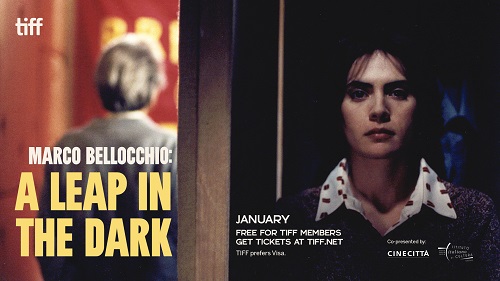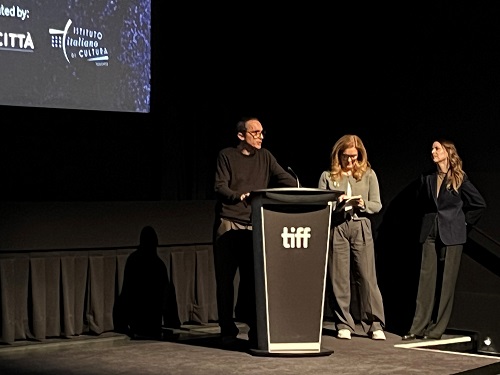TIFF Celebrates Italian Master of Cinema
TORONTO – TIFF Cinematheque is currently running a retrospective of Marco Bellocchio’s decades long film career. The event kicked off this past Friday, and will be running until Jan 29th at TIFF Lightbox. The 14-film retrospective launched with the screening of Bellocchio’s political drama Buongiorno, Notte (2003). Special guest and celebrated actor Pier Giorgio Bellocchio, Marco‘s son, was in attendance for a prologue and post-show Q&As. Prior to the screening Pier Giorgio sat with Corriere Canadese to discuss Italy’s past, present and future in the industry.
On Italian Cinema’s contribution to the artform
“Italian cinema has been and continues to be one of the most invited film scenes in festivals worldwide. So it’s a contribution both in terms of content and form. While in the 1960s/70s/80s the contribution was of primary magnitude, in time it has somewhat diminished – in the sense of the number of Italian auteurs. Directors who make films that manage to have an international scope is smaller, but the level of Italian films is still a very high level”.
What can American cinema learn from Italian Cinema?
“An Italian director Is able to pull off a great film even with very few elements. When great American directors find themselves casting the great Italian actors what surprises them is the ability of an Italian actor to embody the character quickly – without the need to prepare, study, and work for months, or years. Italian cinema a bit like cooking. In Italy you can make spaghetti with tomato sauce or spaghetti with oil and garlic…but these are extraordinary dishes that no one knows how to make [properly] outside of Italy. This is the difference”.
Is the artform suffering due to an overemphasis on streaming and technology?
“You cannot stop a society’s evolution and continue to think that it was “better in the past” than it is now. Progress continues and we have to understand it and adapt. And to bring youth back to the theatre you have to give them something they relate to and recognize. And so to propose something at this level of cinematic language, it is closer to what they see on the streaming platforms”.
On the value of the theatre-watching experience
“Sharing the vision of a film with a group of people in a room is a social experience. It should be obvious that this is a more engaging and highly empathetic way to absorb a film. It is more emotional and engaging, and so a return to the theatres is something that is important, so people can experience this artform together. But also there is an exchange. You exit a movie theater and overhear an opinion of the film that’s different than yours, and you listen further to see if there’s another way to interpret the film”.
(Part 2 of this interview is HERE)
Photos courtesy of TIFF
Massimo Volpe is a filmmaker and freelance writer from Toronto: he writes review





